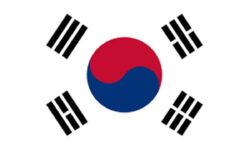
S. Korea urged to study possible VFA with PH, patrols in SCS
MANILA – It would be in the interest of South Korea to participate in maritime patrols in the South China Sea (SCS) and consider forging a visiting forces agreement (VFA) with the Philippines, experts posited in a conference on Friday.
At the Stratbase ADRI forum discussing ways Manila and Seoul could enhance security in the Indo-Pacific, former Korean Defense Vice Minister and Senior Research Fellow at Sejong Institute Shin Beomchul floated the need to expand the level of defense cooperation between the two states.
“I think we should expand joint military drills, so we have to enhance interoperability and increase level of cooperation,” he said.
He disclosed that there had been “discussions” about a Philippine-Korea VFA but the progress is “slower than expected”.
In an ambush interview, Korean Ambassador to the Philippines Lee Sang-hwa did not provide details either but confirmed that the proposal for a VFA “was on the table”.
“We heard the former vice minister of the Defense Ministry that the Korean side has been considering, has been giving thought to the idea of a visiting forces (deal). I’m not privy to the details of how it has been reviewed by the relevant authorities but that’s, I think, on the table,” he said.
Yonsei University Associate Professor Park Jae Jeok, meanwhile, said Korea’s participation in maritime patrols in the region would align with its Indo-Pacific Strategy.
After the launch of its Indo-Pacific Strategy, South Korea had been vocal about its concern over actions in the West Philippine Sea (WPS), which Lee said signals Seoul’s firm commitment to a “rules-based” order in the region.
The envoy declined to comment if South Korea is open to take part in WPS joint sails but said “Korea can be one of the top candidates” should the country decide to expand its maritime cooperative activities (MCA) with other states.
MCAs, conducted within the Philippine exclusive economic zone, are billed as a show of “collective commitment to strengthen regional and international cooperation in support of a free and open Indo-Pacific” between Manila and its partners.
In April and August, Australia participated in two separate joint sails with the naval forces of the Philippines, the United States, Japan, and Canada.
Korea de-risking
Beyond security, Prof. Yeon Wonho, director for the Korea National Diplomatic Academy-Center for Economic and Technology Security Studies, said the Philippines’ “geopolitical location” also opens up other avenues for cooperation, especially on critical minerals and cybersecurity.
“If geopolitical conflict in the South China Sea paralyze submarine internet cables in the South China Sea, South Korea would have to rely on Japan, Taiwan, and the Philippines,” he said.
“This is another important reason why cooperation with the Philippines is crucial for de-risking of Korea,” he added.
Yeon also noted the Philippines’ significant reserves of critical minerals and good-quality human resources.
“Stabilizing the import is very important for our supply chains. So, we see Southeast Asia as a good alternative for China,” he told the Philippine News Agency in a separate interview.
“We are, right now, at the moment, finding the right alternative. The Philippines could be a possible destination, but it depends on both sides’ efforts,” he added, sharing his observations that Korea has also become “too much dependent on Vietnam these days”.
On the other hand, he said Manila should further invest in improving its key infrastructures.
“For example, in terms of industries, we are trying to decrease our dependence on China so that means we are trying to find replacements— but when we think about replacements, I think infrastructure is very important,” he said. (PNA)



